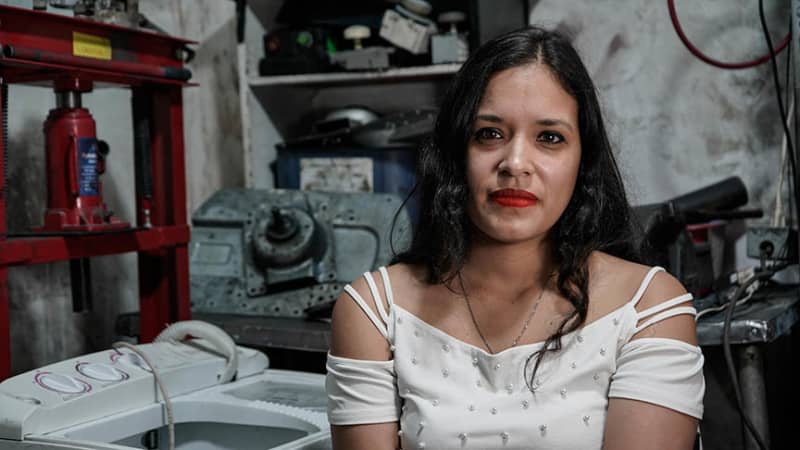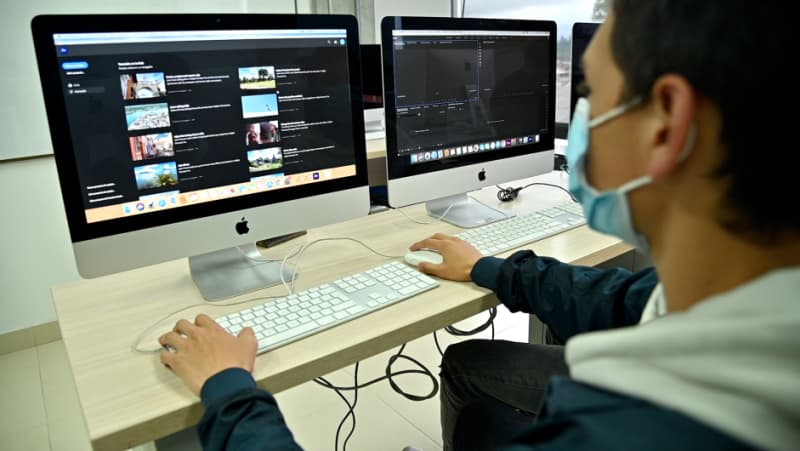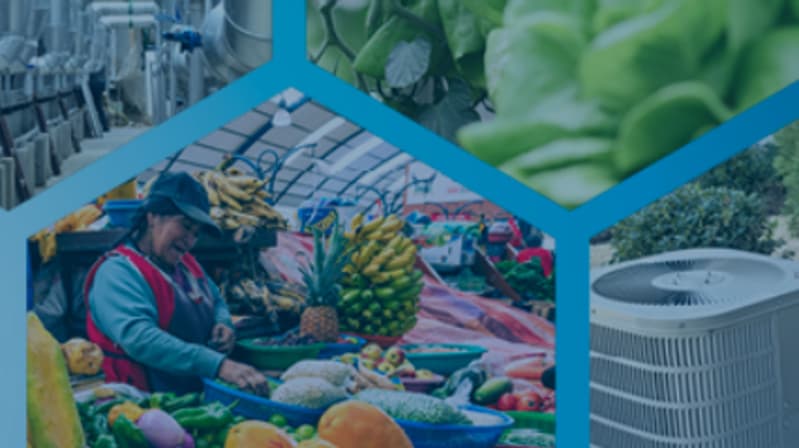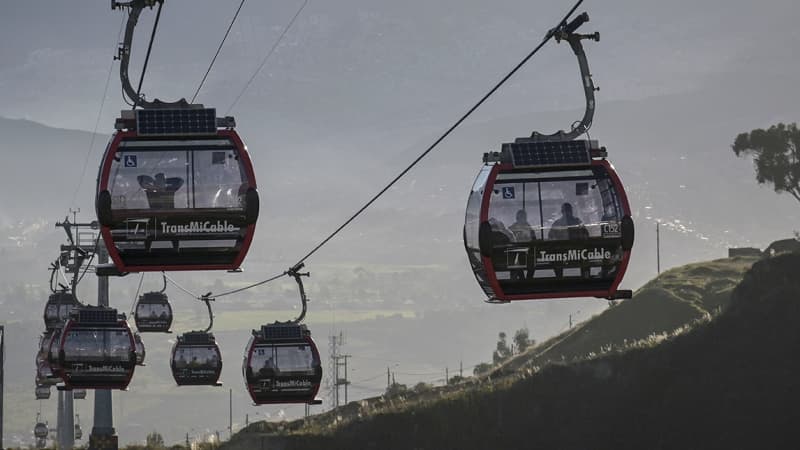For Venezuelans in Colombia, Micro-loans Offer a Fresh Start
Of the 6 million Venezuelans who have fled turmoil in their homeland, more than 1.7 million of them have settled in Colombia. Without bank accounts, few have had the opportunity to create businesses and establish stable lives. But Bancamía is changing that.

In November of 2021, IFC and Bancamía, Colombia’s first microfinance bank, launched a pilot program of products, services, and digital channels to help Venezuelans in Colombia integrate into social and economic life. Since then, almost 5,300 Venezuelans in Colombia have received loans. More than half of them are women.
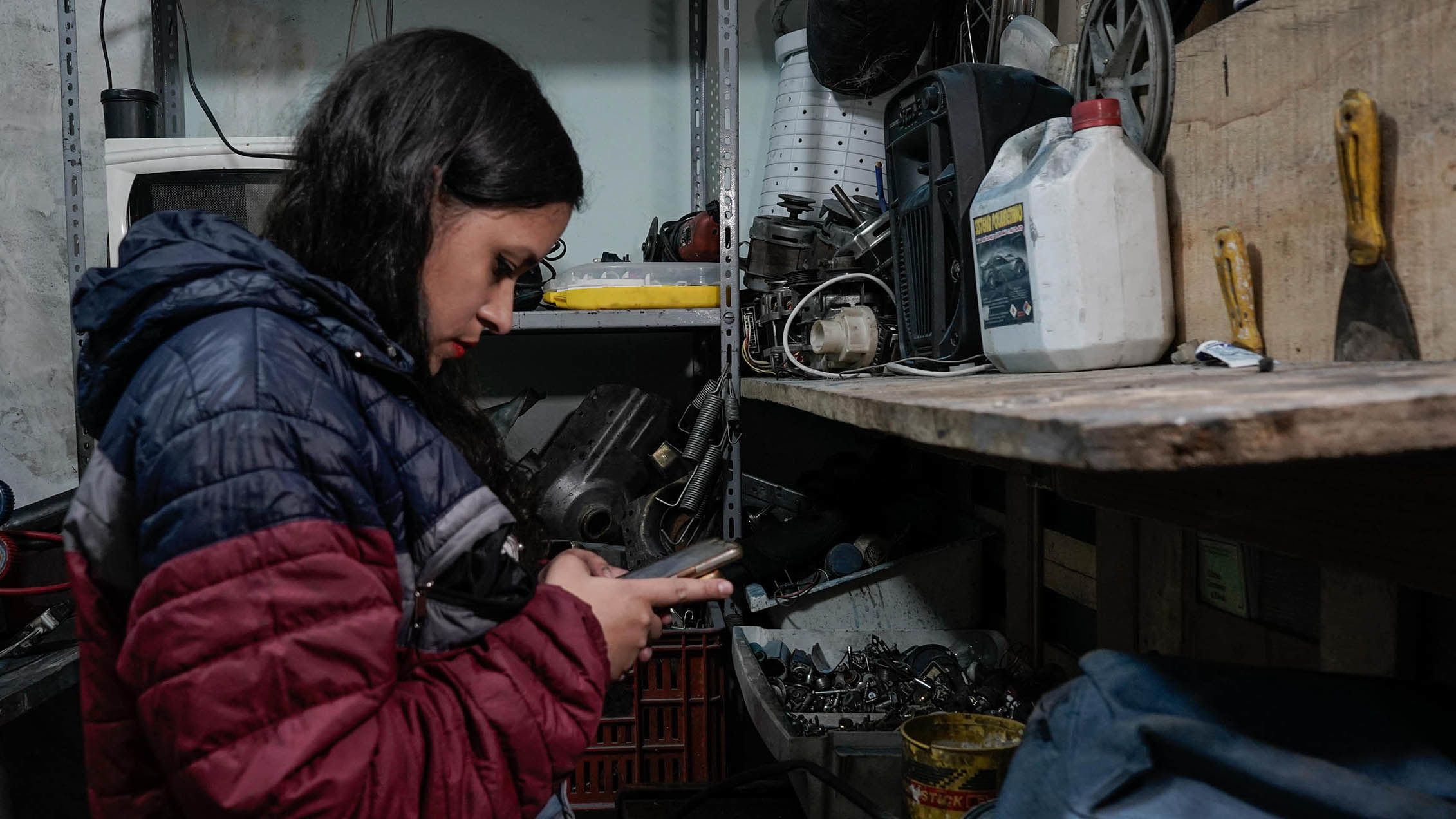
María José Noguera Martínez and Yulimar Loreto Diaz, two Venezuelan women who have taken refuge in Colombia, are building new lives for themselves and their families with help from Bancamía’s loans.
When María José Noguera Martínez and her husband left Venezuela, looking for a more stable life for their three daughters, they moved to Colombia to be near relatives. Though she had few options for earning money, she nurtured a big idea: a business that rented washing machines by the hour. She saw the need in her neighborhood, where people are too poor to own their own washing machines, and she and her husband decided to approach Bancamía for a loan. Like many other Venezuelans, though, she migrated without a valid passport—and without that, she could not open a bank account.
But Bancamía’s program to include Venezuelans in the financial system took into account issues like this. A bank representative visited Noguera at home, checked her accounts and paperwork, and approved her first loan of 1.2 million pesos ($313) the next day—along with a residency permit granted by the immigration office in Colombia.
Ultimately, Noguera and her husband received two loans from Bancamía, for a total of 4.7 million Colombian pesos ($1,227). They used the loans to buy new washing machines and spare parts, along with soaps and detergents they sell to customers. They now have 40 washing machines, most of which are stacked up in the garage of their small house.
“The bank loan changed my life a lot because it has allowed me to put together the business I currently have, become independent, and not have to work for someone else,” Noguera said.
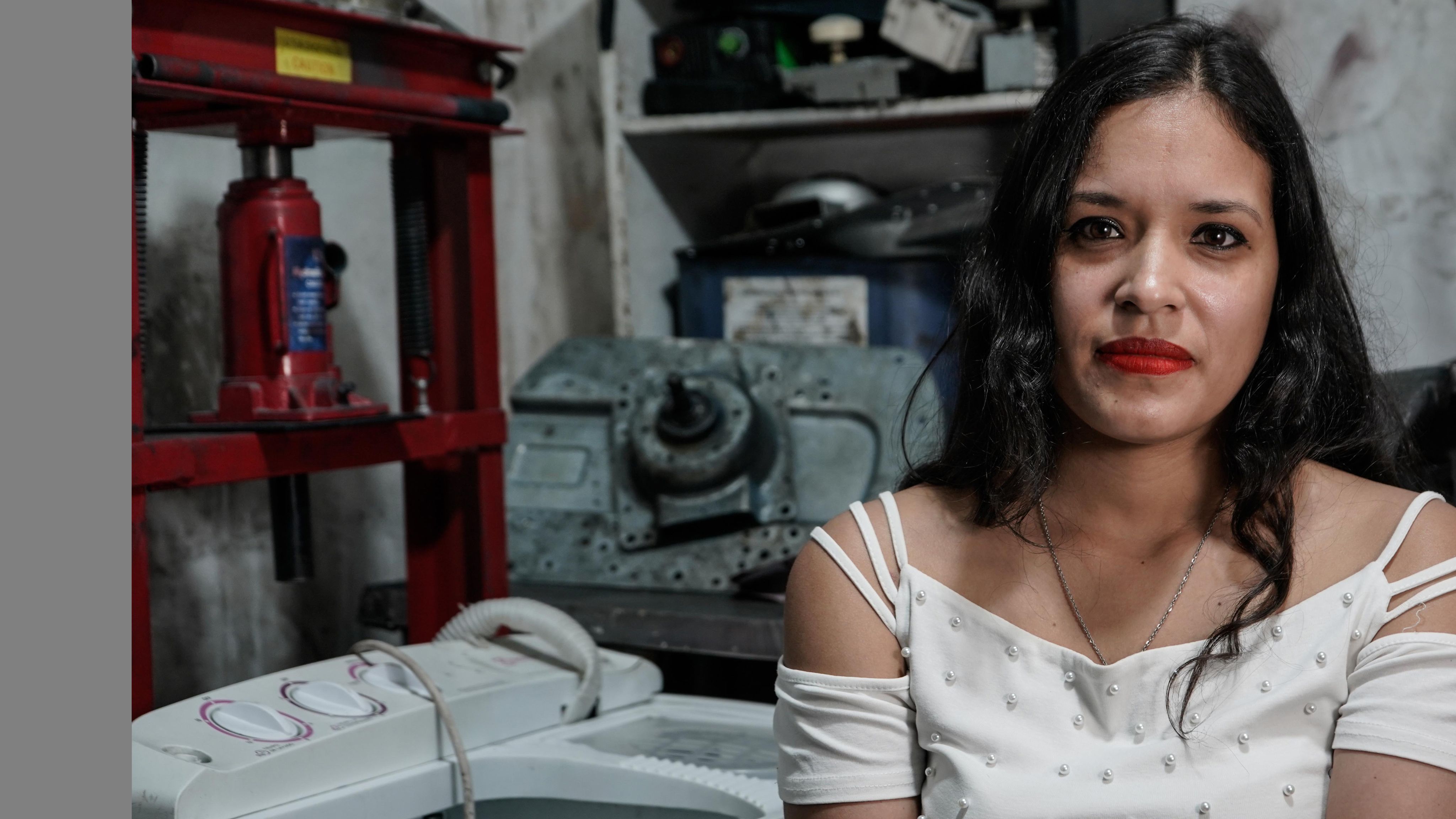
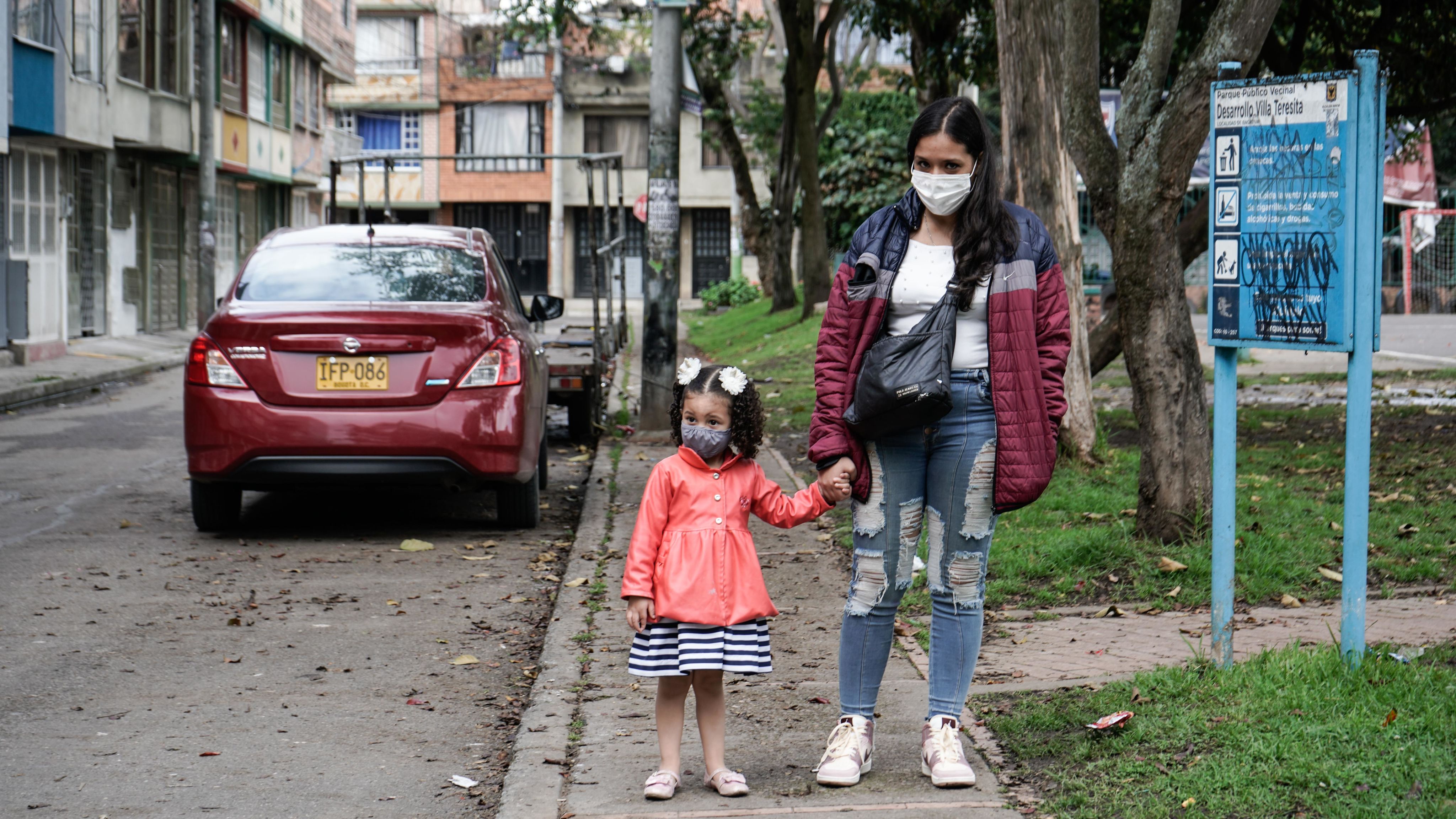
Working for herself means working from home, where customers start calling at 7 a.m. with requests for washing machines. In-between responding to customers, Noguera drives her three daughters to and from school and helps them with cooking and homework. She and her husband also support her sister-in-law and pay for her to go to college.
Noguera wants to grow her business and buy even more washing machines as sometimes there is more demand than she can supply. What she has established so far is only the beginning, she said.
“I have been able to build a credit history and then in a few years will be able to ask for a loan for a car or a house,” Noguera said. “Then I can say, ‘Oh wow, I made it.’”
Yulimar Loreto Diaz, a 46-year-old Venezuelan mother of two, visited Colombia in 2019. She never thought she and her family would remain for three years—and counting. But during her visit to Colombia, the Venezuelan government closed border crossings. Diaz and her family had no way to get back home.
So instead of returning to the cable television company she ran, Diaz worked with her husband in the kitchen of a Colombian restaurant. But their entrepreneurial instinct soon kicked in, and they decided to open their own store. A computer science graduate, Diaz had her eyes set on a cell phone and computer repair shop. But then she started noticing that because she had no credit history, few people look her seriously.
“Nobody wanted to rent us their space. We would keep dropping applications and we would continue to get rejections,” Diaz said. Eventually, a Colombian friend became a co-signer, and they found a store to rent.
Next came a bigger challenge. Launching the new business required capital.
“In Venezuela, we had our own stores, and we had our credit history,” said Diaz. “It’s been tough trying to get funding here.”
That’s when Bancamía stepped in. Bancamía granted Diaz a loan of 3 million Colombian pesos ($774). The loan helped the couple grow their business. The store originally offered SIM cards, photocopies, and internet and international phone services, but it quickly expanded: it now now offers computer and cell phone repairs, thanks to the new tools and equipment bought with the loan.
Still, it’s been a rocky start. Diaz opened her store in February 2020, just before the COVID-19 pandemic hit, and she had to stop operating for two months. Diaz got a special permit to re-open because lockdown and work-from-home mandates prompted a greater need for computer and cell phone services. Less than a year later, though, thieves emptied her store of merchandise.
But Diaz and her husband keep pushing ahead. With their newly-established credit history, they plan to raise more funds and start a second business, perhaps a studio that offers photography for weddings, baptisms, and school ceremonies.
“As an entrepreneur, you are always in to win,” Diaz said.
Published in March 2022
This story was designed and produced by Julia Schmalz and Armando Gallardo.
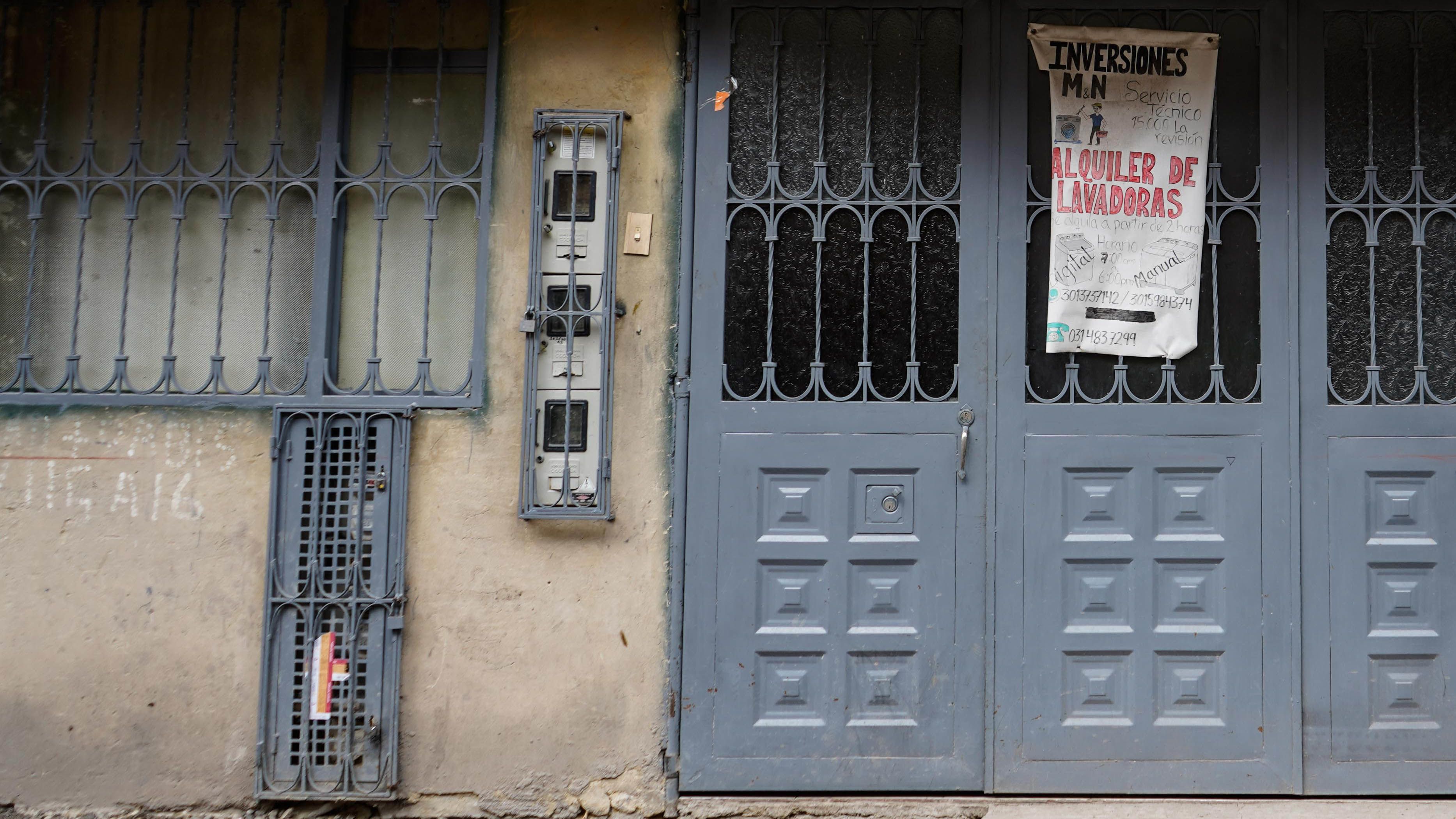
More about Colombia's transformation:






